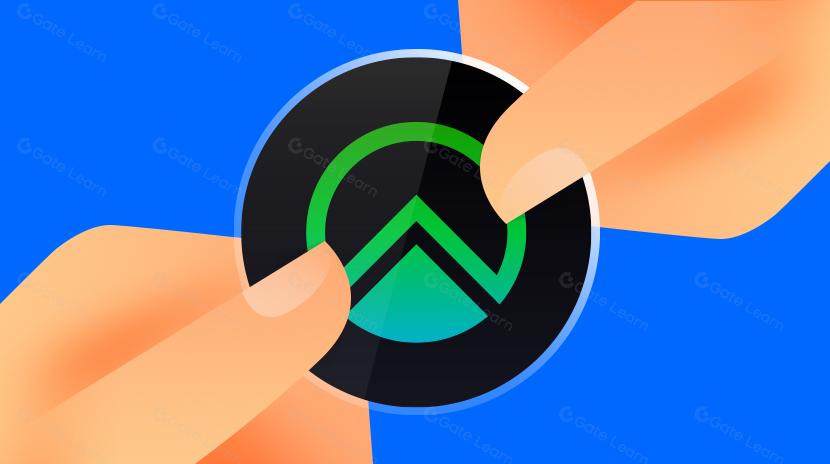什麼是 BLOCKLORDS(LRDS)?
BLOCKLORDS(LRDS)是一款基於策略的 Web3 遊戲,玩家在一個由區塊鏈技術驅動的動態中世紀元宇宙中建造、統治並進行交易。遊戲融合了治理機制、動態經濟系統與真實玩家驅動的敘事體驗,為參與者帶來沉浸式的長線發展與互動玩法。遊戲行業長期以來一直在探索玩家驅動的經濟系統和具有深度的戰略玩法,但通常仍侷限於預設機制,無法讓用戶真正塑造遊戲世界。傳統 MMORPG 雖然營造出沉浸式虛擬環境,但其經濟系統依舊僵化且受控,阻礙了玩家對遊戲內市場的真實影響力。同時,曾被《Command & Conquer》和《Age of Empires》等經典作品統治的策略遊戲類型也逐漸式微。BLOCKLORDS 通過結合玩家驅動的經濟與深度戰略機制,致力於在現代遊戲時代重振並重塑這一遊戲類型。
什麼是 BLOCKLORDS(LRDS)?
BLOCKLORDS 由 MetaKing Studios 於 2018 年構思創立,該工作室由 David Johansson 和 Nicky Li 創辦,旨在革新 Web3 領域中的策略遊戲體驗。Johansson 擔任 CEO 和創意總監,擁有豐富的遊戲開發經驗,曾參與《Crusader Kings》和《League of Angels》等作品的開發。COO Nicky Li 則來自中國頂尖遊戲工作室,主導過《League of Angels》和《Liberators》等成功項目。他們共同構想了一個由玩家驅動的中世紀元宇宙,融合策略、治理與資源管理機制,並輔以區塊鏈驅動的經濟系統。
BLOCKLORDS 很快便獲得了來自傳統遊戲行業和 Web3 領域的強力投資支持。該項目得到了 Square Enix、Krafton、FunPlus、Bitkraft、Makers Fund、Animoca Brands 和 Spartan Group 的支持,體現了業界對其創新理念的高度認可。這些合作在開發資金、技術資源及遊戲與區塊鏈生態的推廣方面發揮了關鍵作用。
該遊戲於 2022 年第一季度在 GDC 正式發佈,標誌著其進入區塊鏈遊戲行業。到 2022 年第二季度,BLOCKLORDS 集成了 Immutable X(IMX);隨後在第三季度發佈了 “Protect Your House” 預告片和 Banner IMX NFT。年底,IMX Hero NFT 發佈並引入錦標賽系統,進一步鞏固了遊戲的區塊鏈實用性。
2023 年第一季度,BLOCKLORDS 宣佈集成 Polygon,並推出了名為 Hunters 的功能,引入了基於 PvE 的玩法元素。第二季度,封閉測試版上線,玩家首次獲得實際操作體驗。到 2023 年第三季度,BLOCKLORDS 登陸 Epic Games Store 進行搶先體驗,累計添加至超 30,000 個遊戲庫。
2023 年第四季度,遊戲快速擴展,新增 PvE 農場戰鬥、發佈 “Slay the Bear” 預告片,併發布了新版白皮書。在季前賽結束後,BLOCKLORDS 對其經濟系統、治理機制和戰鬥玩法進行了優化,推動形成了一個高度活躍的玩家社區。
2024 年,遊戲重點轉向主要玩法與經濟功能,包括 BearSlayer 賽季活動、$LRDS 代幣發佈、Gathering of Legends 活動,以及 Dynasty System 的上線。同時,遊戲開始開發 LORDCHAIN —— 一條專為遊戲內交易與經濟優化的定製區塊鏈。
BLOCKLORDS 已經上線,擁有數千名活躍玩家,共同塑造這個由玩家驅動的策略世界。憑藉持續的創新、行業領先的合作伙伴以及一支專注的開發團隊,BLOCKLORDS 旨在重新定義基於區塊鏈的策略遊戲,將傳統遊戲的深度與 Web3 技術相結合。
BLOCKLORDS 如何運作?遊戲機制與技術
BLOCKLORDS 是一款高度沉浸式的中世紀策略遊戲,結合了資源管理、戰鬥、治理和玩家驅動的經濟系統。玩家需要管理農場、招募小隊、參與戰鬥,並通過統治與外交擴展影響力。遊戲的複雜生態鼓勵戰略規劃與靈活應變,使每一位玩家的遊戲旅程都獨一無二。

來源:wiki.blocklords.com
遊戲的核心在於農耕與資源採集,玩家通過 Villager Squads 收集木材、食物、石頭等關鍵資源。通過建造鋸木廠等建築可擴展農場,不僅提升產能效率,還能提供發展所需的資源。Squad 管理至關重要,每個單位都具備獨特能力,影響資源採集、加工及防禦能力。為 Squad 指派 Hero 能顯著提升其效能,因此打造一支平衡的勞動力隊伍至關重要。
除了資源管理,World Map 是玩家探索、定居與征服區域的核心樞紐。BLOCKLORDS 世界被劃分為 50 個獨特區域,每個區域由一位 Ruler 管理,並擁有其專屬的主城、稅收制度與人口動態。玩家可以派遣 Hero 執行任務、參與區域戰鬥,並根據戰略優勢決定農場選址。
Hero 在塑造每位玩家命運中扮演關鍵角色。玩家初始將獲得一位隨機生成的 Farmer Hero,並可將其發展為 Raider、Knight、Ruler 甚至 King/Queen 等多種職業。Hero 能佔領領地、參與戰鬥,並通過 Dynasty System 建立傳承。Hero 的價值取決於其貢獻與遊戲技巧,是 BLOCKLORDS 非對稱經濟體系中的關鍵資產。
Ruling 系統引入治理機制,晉升為 Ruler 的玩家將管理城市、徵收稅款並監管基礎設施建設。然而,統治伴隨著責任——玩家必須保衛領地、確保經濟穩定並維持與 Farmers 的良好關係。BLOCKLORDS 在 Ruler 與 Farmer 之間構建了一種共生關係,強化了各區域內合作與策略的重要性。
Dynasty 機制使玩家得以建立家族傳承,確保影響力跨世代延續。玩家可結婚、生育子嗣、培養繼承人,將技能與資源代代相傳,從而維持長期統治。穩固的家族不僅帶來穩定,還提供持久優勢,使家族管理與軍事策略同等重要。
戰鬥是遊戲中不可避免的一部分,玩家將為資源與領土的控制權展開爭鬥。Farm Assaults 需要防禦敵方的襲擊,而 Stronghold Battles 則提供大規模戰爭場景。玩家還可參與 Raids、Rebellions 與 Kingdom Wars,自主選擇通過武力或外交實現征服。
BLOCKLORDS 的 Seasons 系統帶來全新的競技體驗。玩家通過完成戰鬥、農場管理、市場交易等任務獲取 Season EXP。遊戲設有雙重排行榜(Basic 與 Bearslayer),頂級玩家將獲得獨家獎勵,如金幣與傳奇 Hero。
經濟系統
經濟體系的核心是農業,這是遊戲的基礎玩法循環,也是新玩家的主要切入點。農民負責採集關鍵資源,如食物、木材和石材,這些資源被用於發展農場區域、訓練小隊,併為區域性項目作出貢獻。農業運作的效率將直接影響地區的繁榮度,使資源管理成為關鍵的遊戲機制之一。
戰鬥在經濟中同樣扮演著重要角色,玩家通過戰鬥爭奪珍貴資源的控制權。戰鬥形式涵蓋從與野生動物的小規模衝突,到對要塞的大規模圍攻,玩家可以通過戰鬥獲取稀有材料、擴展勢力範圍,並解鎖專屬的遊戲資產。遊戲經濟體系融合了戰鬥等級機制,鼓勵玩家多樣化角色選擇,以最大化資源獲取效率。
對統治者而言,經濟的核心是治理與徵稅。他們從農民處收稅、管理資源並升級城市,確保地區經濟保持穩定與高效發展。戰略性的資源分配對實現長期發展與政治主導地位至關重要。

來源:wiki.blocklords.com
在更高層級,征服行為使玩家能夠通過結盟、戰爭與貿易談判擴展帝國疆域。管理領地資源、執行貿易章程以及做出高風險經濟決策,是那些希望主宰 BLOCKLORDS 中世紀元宇宙玩家的關鍵任務。
技術架構
BLOCKLORDS 融合了遊戲開發與區塊鏈技術,打造出互動性強且可擴展的遊戲體驗。遊戲基於 Unity 構建,提供精細的圖形表現、流暢的遊戲機制以及跨平臺兼容性。Unity 的框架支持實時渲染與基於物理的交互,使中世紀策略環境更加生動且具有動態表現力。
BLOCKLORDS 的一項核心技術特性是區塊鏈互操作性,由 PORTAL 系統提供支持。該系統允許玩家在多個區塊鏈之間轉移遊戲內資產,包括 BLOCKLORDS 的專屬鏈 LORDCHAIN。PORTAL 能夠在無需第三方應用的情況下完成資產轉移,簡化了區塊鏈的交互流程。同時,它還支持集成新的區塊鏈網絡,使遊戲具備適應未來區塊鏈基礎設施發展的能力。

來源:wiki.blocklords.com
遊戲還整合了 Seascape Auth Centre,這是一套用戶認證與錢包連接的統一系統。該系統允許玩家跨多個平臺(包括 Web3 錢包)管理賬戶,從而簡化遊戲內交易和數字資產的所有權管理。由 Seascape 合作開發的 Sealinks 技術,支持在 BLOCKLORDS 生態系統內部署私有鏈,從而實現更高效的資源管理和更強的可擴展性。
未來將推出的公共 API 將允許合作伙伴和開發者訪問遊戲內數據,便於他們創建定製化應用和工具,從而拓展遊戲生態系統。
LORDCHAIN
LORDCHAIN 是由 BLOCKLORDS 團隊開發的 Layer-3 區塊鏈解決方案,旨在為 Web3 遊戲提供可擴展性、高效率與無縫互操作性。LORDCHAIN 構建於 BASE 與 Optimism Stack 之上,實現了超低交易費用、高吞吐量與即時跨鏈橋接,為玩家驅動型經濟與大規模區塊鏈遊戲提供了理想的基礎設施。
LORDCHAIN 的誕生源於 BLOCKLORDS Dynasty 的成功,該活動吸引了超過 185 萬用戶,並在 BASE 上處理了 8000 萬筆交易。為滿足不斷增長的鏈上交互、資產交易和治理需求,LORDCHAIN 被開發為專為遊戲定製的專屬區塊鏈環境。其目標吞吐量為每秒 500 萬 gas,即便在高網絡負載下,交易依然保持快速且低成本。

來源:wiki.blocklords.com
LORDCHAIN 的一項核心功能是其快速橋接機制,使用戶能夠在 10 秒內完成 BASE 與 LORDCHAIN 之間的資產轉移。這消除了區塊鏈橋接通常存在的長時間等待問題,確保玩家可以在不同鏈之間無縫轉移資產、英雄和遊戲內資源,不會中斷遊戲體驗。
通過利用 Optimism Stack 技術,LORDCHAIN 完全兼容以太坊生態中的應用程序,使其能夠輕鬆整合進其他 Web3 生態系統。這確保了現有的 DeFi 工具、NFT 市場和去中心化應用(DApp)在無需額外修改的情況下即可在 LORDCHAIN 上運行。
驗證者在維護 LORDCHAIN 的安全性、穩定性和去中心化方面發揮著關鍵作用。作為網絡的支柱,驗證者負責驗證交易、生成區塊,並確保區塊鏈內部的共識機制正常運行。通過參與驗證過程,用戶有助於提升網絡的完整性和效率,從而為所有 BLOCKLORDS 玩家提供順暢的遊戲體驗和穩定的基礎設施。
LORDCHAIN 擁有兩種類型的驗證者:Master Validator 和 User Validators。Master Validator 由 BLOCKLORDS 團隊運營,作為主驗證節點,保障網絡穩定性,併為質押 $LRDS 代幣的用戶提供質押獎勵和治理參與機會。通過在 Master Validator 中鎖定 $LRDS,用戶將獲得 veLRDS(投票權)、遊戲內獎勵、節點能量(Node Power, NP)以及專屬 NFT。
User Validators 則由核心合作伙伴和特選參與者管理,允許更廣泛的貢獻者支持網絡,同時賺取被動收益。這些驗證者將獲得基於手續費的激勵,確保長期參與和經濟可持續性。

來源:wiki.blocklords.com
BLOCKLORDS 的使用場景
憑藉其動態經濟系統與 Web3 集成,這款遊戲為不同類型的玩家提供了多種使用場景,從休閒的農夫到野心勃勃的統治者皆可參與其中。
- 玩家主導的經濟與 NFT 集成:BLOCKLORDS 引入了一個完全由玩家掌控的經濟系統,所有遊戲內資產——包括英雄、資源和領地——都可以由玩家創造、擁有並進行交易。英雄是具有獨特屬性的 NFT,其價值會隨著參與戰鬥和擔任治理角色的過程不斷增長。玩家還可以在市場中交易資源與商品,構建一個有機且自我維持的經濟系統。
- 戰略戰爭與王國擴張:遊戲允許玩家為土地與資源展開戰鬥,包括農莊防禦、要塞攻城戰或大規模王國戰爭。統治者與戰略家可以建立聯盟、管理軍隊並發動戰爭,利用外交與軍事力量擴展自己的影響力。每一個決策都會影響地區政治、貿易和軍事結果,隨著時間推移不斷塑造 BLOCKLORDS 宇宙。
- 治理與王朝構建:玩家可以逐步晉升為城市或地區的統治者,實施稅收體系、監管貿易並管理基礎設施。王朝系統確保玩家的進展可以代代相傳,從而建立長期影響力。該治理結構由 Web3 技術支撐,確保玩家在不斷演化的遊戲世界中能夠進行有意義的參與與決策。
BLOCKLORDS 核心功能
市場
BLOCKLORDS 市場是 Web3 生態中的一個核心樞紐,專用於交易、升級與管理遊戲內資產。玩家可以強化英雄、買賣資產,並以去中心化方式參與遊戲經濟。
市場的一大關鍵功能是鏈上交易,用戶可以在多個網絡之間安全地轉移和出售英雄、武器及遊戲內資產。Immutable X 和 Polygon 提供快速且低成本的交易體驗,確保轉移過程順暢且無需高昂的 Gas 費用。玩家還可以從其他平臺或遊戲導入英雄,也可以將自己的英雄導出,增強 BLOCKLORDS 在區塊鏈遊戲領域的互操作性。
支持的交易平臺包括 BLOCKLORDS Market、Token Trove、Immutable Marketplace、OpenSea 和 Magic Eden,提供多種資產交易渠道。Web3 身份驗證的集成使市場可輕鬆連接錢包,確保用戶體驗順暢且安全。

來源:wiki.blocklords.com
娛樂性
BLOCKLORDS 重新定義了玩家角色與互動方式,打造了一個由用戶決策所塑造的“活”遊戲世界。與傳統遊戲中固定敘事的模式不同,BLOCKLORDS 提供一個動態且不斷演化的宇宙,玩家可主動影響其發展。
該遊戲強調互動性與社區驅動體驗,玩家的選擇將影響世界的發展、政治格局與經濟體系。這一模式鼓勵合作、戰略部署以及長期投入,玩家可以協作或對抗,以共同塑造這個中世紀王國。
BLOCKLORDS 通過確保玩家決策能影響治理、聯盟與地區經濟,進一步提升了遊戲世界的深度與豐富性。其非對稱經濟與戰略戰爭機制為每位參與者提供獨特體驗,確保每場戰役都不盡相同。
Lore
BLOCKLORDS 構建於一箇中世紀風格的背景之上,歷史、遺物與傳說共同塑造了遊戲的宇宙。然而,大部分世界觀內容由社區驅動,這意味著玩家將主動參與到不斷演化的敘事之中。
遊戲世界的基礎設定包括電影級預告片、詳細的英雄背景資料以及初始的世界結構,但未來的故事線與地區歷史將由玩家的互動與選擇所決定。隨著更多玩家加入 BLOCKLORDS 宇宙,他們的行為、決策與治理選擇將影響政治與經濟體系,確保遊戲持續保持動態與吸引力。
雖然魔法並不直接改變自然法則,但遊戲中融入了文化層面的魔法與神祕信仰,為中世紀體驗增添了深度與魅力。Provenance 系統記錄玩家的決策與歷史裡程碑,強化了一個由玩家驅動的世界,在這個世界中,每位英雄與王朝都將為 BLOCKLORDS 的宏大歷史做出貢獻。
治理系統
BLOCKLORDS 採用去中心化治理機制,允許玩家就遊戲開發、平衡性調整及遊戲內政策進行投票。通過鎖定 $LRDS 代幣,玩家將獲得 veLRDS,從而獲得治理投票權。
提案內容涵蓋從玩法調整、經濟機制優化到項目的長期發展目標,確保社區能夠積極塑造遊戲未來。玩家在參與投票的同時也可獲得獎勵,使治理過程既具參與性又具回報性。
治理過程透明,所有提案與投票結果都可通過治理界面公開查看。成功的提案將以鏈上或遊戲內形式執行,使玩家能夠直觀看到其決策帶來的影響。
為最大化投票權重,玩家可以啟用 Auto-Max Lock 模式,確保鎖定代幣具備 1:1 的投票影響力。

來源:wiki.blocklords.com
NP 銷售與用戶驗證者認領
BLOCKLORDS 提供 Network Points(NP)銷售與用戶驗證者(User Validator)認領機制,允許玩家參與網絡建設與擴展。NP 通過 $LRDS 購買,並用於獲取 User Validators,這些驗證者共同維護 LORDCHAIN 網絡安全。
驗證者在保障網絡安全、驗證交易以及支持生態擴展中扮演關鍵角色。驗證者數量有限,分為 Basic 至 Legendary 多個等級,每類驗證者提供不同的激勵機制、質押獎勵及遊戲內影響力。
驗證者擁有者通過存款手續費、獎勵提取費及治理參與等方式獲得被動收益。通過擁有驗證者,玩家不僅為網絡穩定性做出貢獻,同時也享有經濟回報。
NP 銷售與驗證者認領機制強化了 LORDCHAIN 的去中心化特性,使玩家在積極參與遊戲區塊鏈基礎設施建設的同時獲得實際獎勵。

來源:wiki.blocklords.com
王朝 Dynasty
BLOCKLORDS 的王朝系統允許玩家通過戰鬥、策略與家族聲望打造持久的傳承,影響整個中世紀世界。玩家可參與決鬥(Duels),派遣英雄上陣以獲取聲望(Renown)並提升等級,每場戰鬥都伴隨受傷或死亡的風險。
除了戰鬥,玩家還可完成任務(Missions),挑戰高風險事件以增強家族力量並獲取稀有獎勵。聲望可用於研究新的家族傳統(House Traditions),解鎖強大的增益效果,帶來實質性玩法優勢。Orbs 系統則代表終極身份象徵,玩家可用 Orbs 兌換專屬遊戲內獎勵。
通過縝密規劃與果敢決策,玩家可以建立傳承數代的強大家族,在 BLOCKLORDS 宇宙中留下永恆印記。

來源:dynasty.blocklords.com
影響力(Influence)
影響力是 BLOCKLORDS 中的關鍵資源,直接關聯 $LRDS、玩家策略與遊戲內治理。它使玩家能夠塑造遊戲經濟、解鎖專屬福利,並參與治理決策。
玩家可以通過兩種方式獲得影響力:一種是鎖定 $LRDS,隨時間穩定累積;另一種是直接購買,以實現即時增益。影響力可用於購買資源包、專屬英雄以及加速道具,是推進遊戲進程與戰略部署的重要資產。
在玩法之外,影響力還在社區治理中發揮作用,允許玩家就重要的遊戲決策與經濟政策進行投票。隨著 BLOCKLORDS 的擴展,影響力將進一步應用於建築升級、農場技術、部隊強化及未來的遊戲模塊中。

來源:dynasty.blocklords.com
BLOCKLORDS AI
BLOCKLORDS 引入了由 AI 驅動的敘事系統與角色互動,增強了遊戲的策略深度與沉浸體驗。其中一項核心 AI 功能是 Elisa Revard——一位虛擬使者,致力於重振家族聲望。玩家可通過動態對話與決策機制與 Elisa 互動,從而影響聯盟建立、貿易談判與外交戰略。
AI 系統使遊戲內互動更具個性化,玩家可以建立關係、締結政治紐帶,並推動遊戲世界的發展演變。通過運用機器學習與情境對話生成,BLOCKLORDS 確保玩家與像 Elisa Revard 這類 AI 驅動角色的每次互動都獨特而有意義。這一整合帶來了自適應敘事體驗和更深層次的玩家參與,使 BLOCKLORDS 的中世紀世界真正擁有生命與迴應性。

來源:blocklords.ai/agent/chat/act-elisa
什麼是 LRDS 代幣?
LRDS 是 BLOCKLORDS 的原生代幣,用於治理、獎勵及遊戲內交易。其總供應量為 1 億枚,截至 2025 年 3 月已有 6902 萬枚處於流通狀態。
LRDS 是 BLOCKLORDS 的核心經濟與治理資產,在遊戲及其 LORDCHAIN 生態系統中發揮關鍵作用。與傳統遊戲貨幣不同,LRDS 旨在獎勵戰略性玩法、促進遊戲內交易,並賦予玩家影響遊戲發展的權力。它是 BLOCKLORDS “Play-to-Own” 模式的核心,遊戲內的所有權、決策權和經濟價值均由玩家驅動,而非中心化的遊戲開發商。
在 BLOCKLORDS 中,玩家通過一系列戰略性行為(如資源管理、戰鬥、統治和質押節點)來賺取 LRDS。代幣可用於消費或鎖定,以獲得“影響力”這一關鍵資源。影響力可用於購買專屬道具、賽季資源包、英雄和時間加速道具。該機制確保玩家的積極參與與明智決策不斷獲得回報,進一步強化了玩家對遊戲經濟的所有權。
在遊戲之外,LRDS 也是 BLOCKLORDS 治理模型的重要組成部分。玩家鎖定代幣後可獲得 veLRDS,從而擁有對社區提案的投票權。這一機制允許玩家直接影響遊戲更新、經濟政策與開發優先級,確保 BLOCKLORDS 的發展符合社區利益。
LRDS 同時在 BLOCKLORDS 的專屬 Layer-3 區塊鏈 LORDCHAIN 中發揮關鍵作用,用於交易手續費、驗證者質押及治理決策。玩家通過參與 LORDCHAIN 網絡可部署驗證者節點,獲得額外獎勵,並助力生態系統的穩定運行。
LRDS 的代幣經濟模型設計旨在實現長期可持續性,採用 10 年釋放計劃與每日線性解鎖機制,以確保增長可預測、市場衝擊最小。代幣總供應分配策略明確:36% 用於社區與生態增長,31% 分配給投資者,10% 用於市場推廣,10% 分配給顧問,3% 用於流動性,10% 則為基金會儲備。這一分配機制確保 BLOCKLORDS 的經濟體系保持平衡,既能獎勵長期參與,又可防止代幣過度通脹。

來源:wiki.blocklords.com
$ALE
$ALE 是 BLOCKLORDS 中的重要資源,在王朝系統與遊戲內經濟中佔據核心地位。與其他貨幣不同,$ALE 僅限於遊戲內獲取,通過在釀酒廠(Breweries)中發酵穀物(Grain)生產,由具備專長的英雄負責管理。該過程耗時且具戰略性,確保 $ALE 的供應受控並對經濟產生實際影響。
除了在生產中的作用,$ALE 還在王朝發展中發揮關鍵作用,在英雄結婚、生育與教育過程中會被銷燬(burn)。它象徵著傳承、延續與對後代的投資。通過引入真實的生產機制與深層次的經濟功能,$ALE 不僅是一種資源,更是一種戰略資產,塑造著 BLOCKLORDS 宇宙的長期演進。

來源:wiki.blocklords.com
LRDS 是一個好的投資嗎?
LRDS 在 BLOCKLORDS 生態中具有強大的實用性,既是遊戲內貨幣,也是治理代幣。玩家可以通過賺取、質押與參與投票來使用 LRDS,構建一個由玩家驅動的經濟體系,提升參與感。同時,其線性釋放模型有助於維持代幣的長期穩定性。然而,其未來表現仍依賴於玩家的持續採用與需求增長——如果遊戲無法留住活躍用戶,LRDS 的實用性與流動性可能會下降。此外,區塊鏈遊戲領域的競爭也可能在未來影響 BLOCKLORDS 的市場地位。
如何獲得 LRDS?
若要擁有 LRDS,可以通過中心化加密貨幣交易平臺購買。首先 創建一個 Gate.com 賬戶 ,完成身份驗證並充值資金。隨後,便可按照流程購買 LRDS。
BLOCKLORDS 最新動態
根據 BLOCKLORDS 於 2025 年 2 月 27 日在官方 X 頻道發佈的公告,項目已與 Base 合作推出 LORDCHAIN,這是第一個構建於 Base 上的 Appchain,專為可擴展且高效的鏈上游戲而設計。LORDCHAIN 基於 Optimism Stack 構建,確保快速交易、跨鏈互操作性以及專屬的遊戲區塊鏈環境。通過 Base Appchain 的支持,BLOCKLORDS 加入了採用定製化基礎設施和企業級擴展方案的主流項目行列。這一合作標誌著區塊鏈遊戲的新里程碑,為 BLOCKLORDS 生態系統帶來低費用、無縫資產轉移和更強的遊戲性能。
立即對 LRDS 採取行動
查看今日 LRDS 價格,開始交易你喜歡的幣對:
相關文章
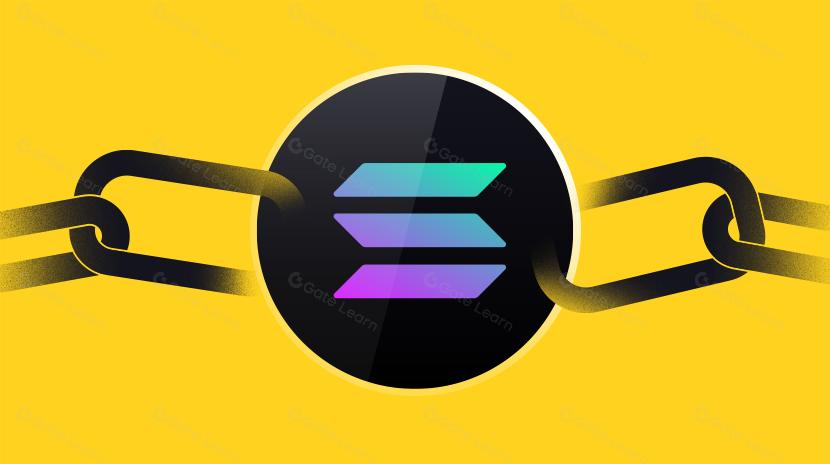
Solana需要 L2 和應用程式鏈?
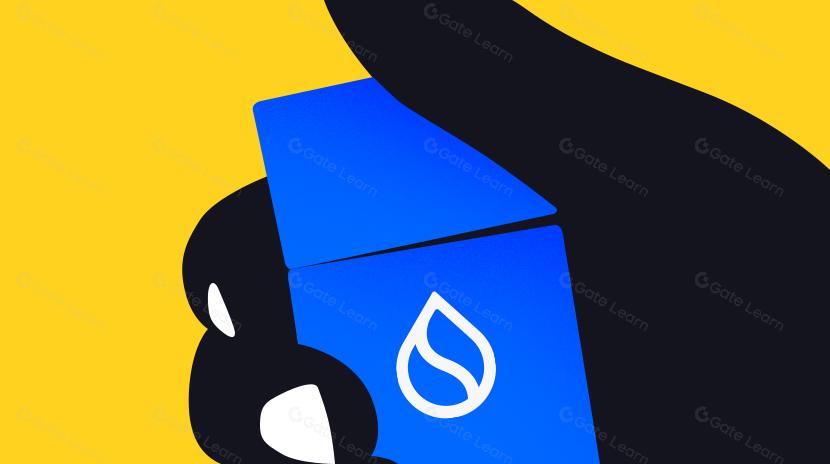
Sui:使用者如何利用其速度、安全性和可擴充性?

什麼是中本聰同步?您需要瞭解的有關 SSNC 的所有資訊
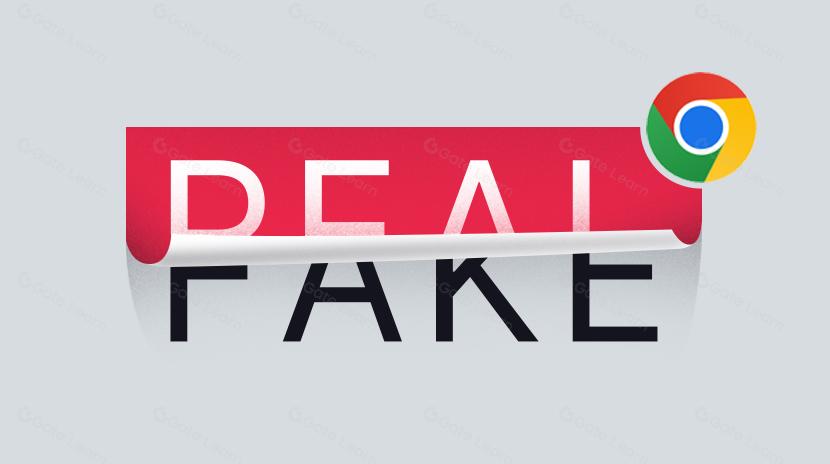
錯誤的鉻擴展程式竊取分析
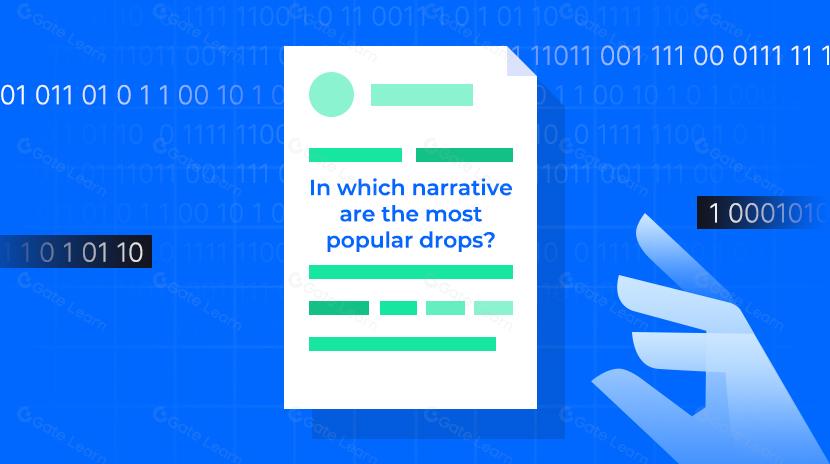
在哪種敘事中最受歡迎的掉落?
